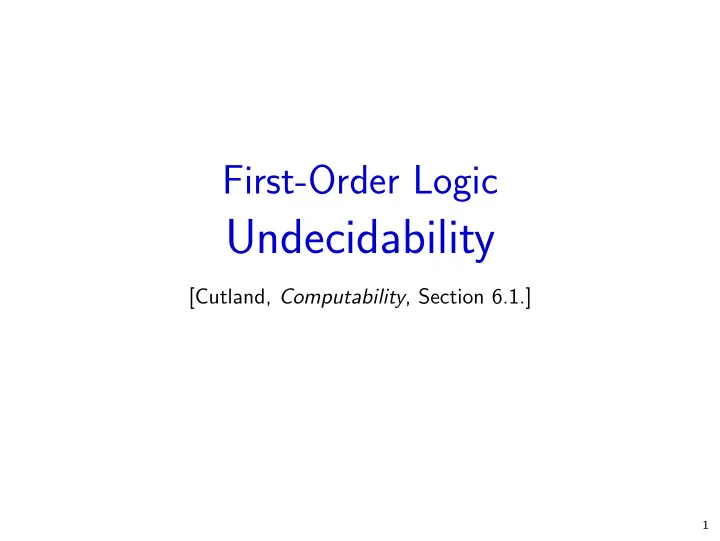

First-Order Logic Undecidability [Cutland, Computability , Section 6.1.] 1
◮ Aim: Show that validity of first-order formulas is undecidability ◮ Method: Reduce the halting problem to validity of formulas by expressing program behaviour as formulas Logical formulas can talk about computations! 2
Register machine programs (RMPs) A register machine program is a sequence of instructions I 1 , . . . , I s . The instructions manipulate registers R i ( i = 1 , 2 , . . . ) that contain (unbounded!) natural numbers. There are 4 instructions: R n := 0 R n := R n + 1 R n := R m IF R m = R n GOTO p Assumption: all jumps in a program go to 1 , . . . , s + 1; execution terminates when the PC is s + 1. Let r be the maximal index of any register used in a program P . Then the state of P during execution can be described by a tuple of natural numbers ( n 1 , . . . , n r , k ) where n i is the contents of R i and k is the PC (the number of the next instruction to be executed). 3
Undecidability Theorem (Undecidability of the halting problem for RMPs) It is undecidable if a given register machine program terminates with a given input. We reduce the halting problem for RMPs to the validity problem for first-order formulas. Notation: P (0) ↓ = “RMP P started in state (0 , . . . , 0 , 1) terminates” Theorem Given an RMP P we can effectively construct a closed formula ϕ P such that P (0) ↓ iff | = ϕ P . 4
Recommend
More recommend